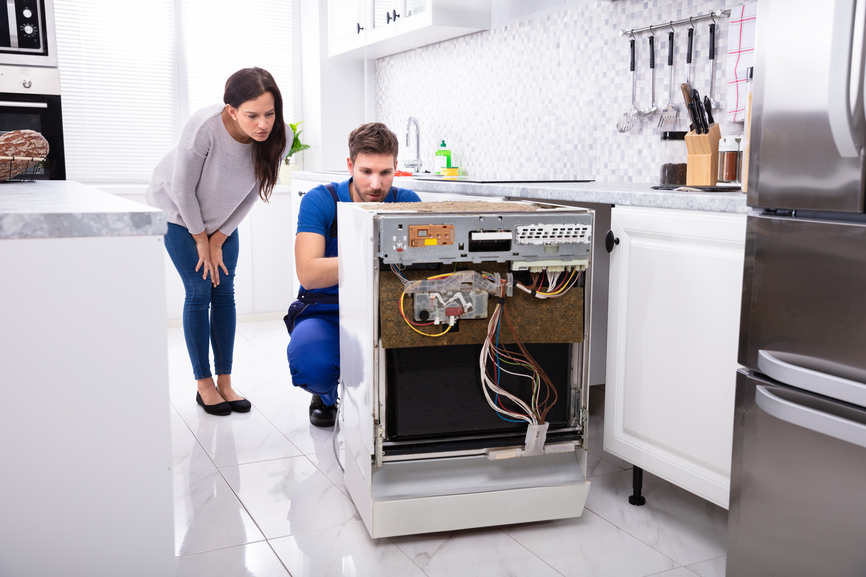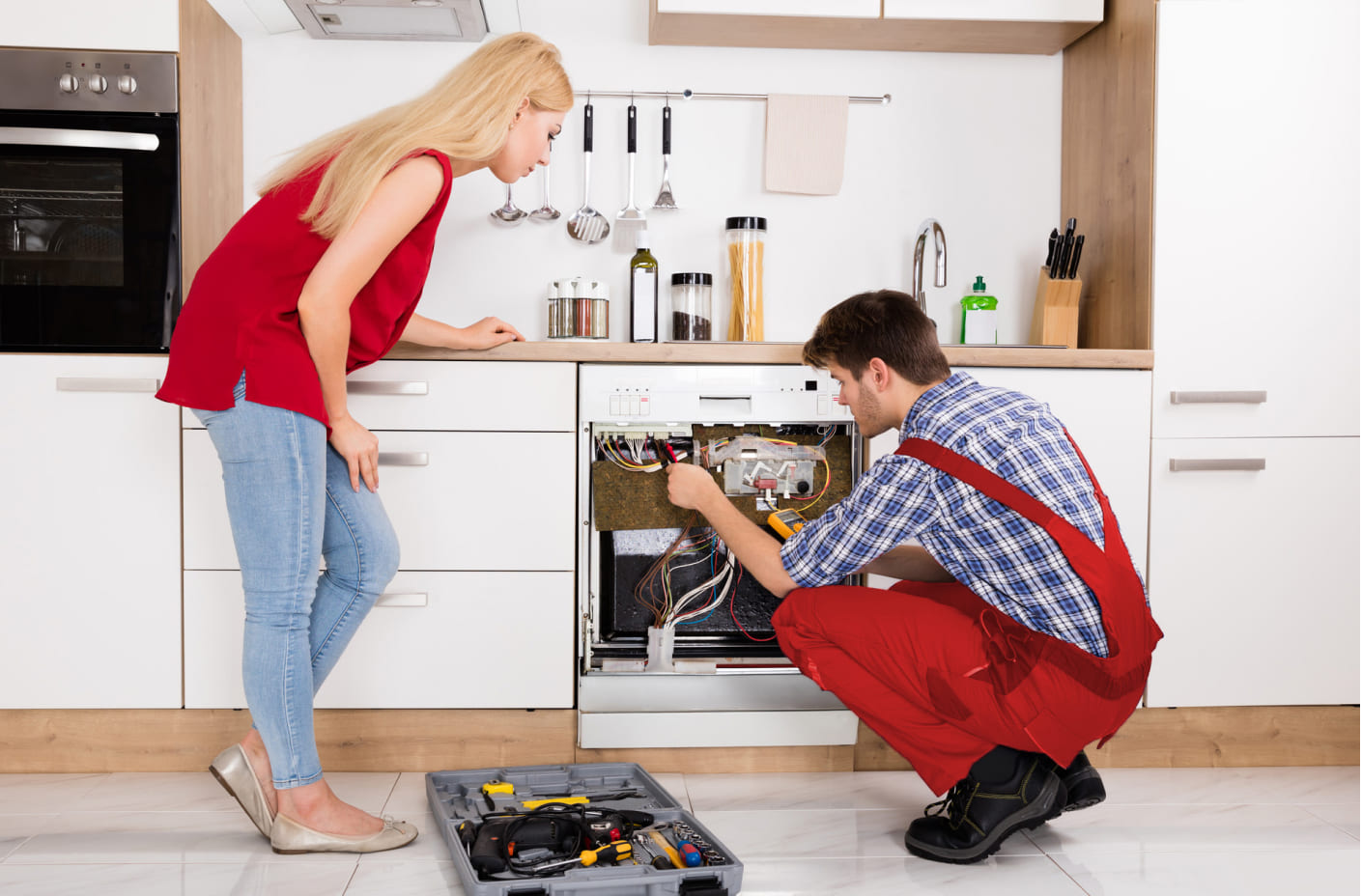Complete DIY Dryer Repair Guide – Dependable Refrigeration & Appliance Repair Service Dryer repair near me
Complete DIY Dryer Repair Guide – Dependable Refrigeration & Appliance Repair Service Dryer repair near me
Blog Article
The Ultimate Guide to Recognizing Appliance Repair Work in your home
When your refrigerator quits cooling or your stove rejects to heat, it can feel frustrating. Understanding home appliance repair in your home can save you time and money. You'll discover to identify symptoms, use important devices, and comply with a systematic troubleshooting procedure. Before you start, there are important safety preventative measures you require to take into account. What are one of the most typical troubles, and how can you repair them? Allow's explore the essentials.
Typical Device Troubles and Their Signs and symptoms
When your devices start breaking down, it's necessary to recognize the signs early on. Overlooking them can cause larger concerns and costly fixings. If your fridge isn't cooling down correctly, you may notice cozy places or condensation forming. This could suggest a stopping working compressor or a blocked vent.Your dishwashing machine may reveal problems through unclean recipes or uncommon noises throughout cycles. If you listen to grinding or clanking, it's time to investigate.A washing equipment that will not rotate or drain can leave you with soaked laundry, suggesting a blocked drain or a malfunctioning pump.Lastly, if your stove's temperature level appears off or it takes forever to preheat, you might be dealing with a damaged thermostat. By remaining alert to these signs and symptoms, you can resolve concerns prior to they intensify into significant repair services.
Important Devices for Home Appliance Repair
When you're taking on appliance repairs in the house, having the right tools is essential. Fundamental hand tools like screwdrivers and pliers will certainly aid you disassemble and fix numerous devices, while electric testing devices assure you're functioning securely with electrical wiring. Allow's look at what you need to start on your repair work trip.
Basic Hand Tools
Having the right tools is necessary for effective home appliance repair work at home. Begin with a reliable screwdriver set, including both flathead and Phillips kinds, as screws are typical in device setting up. Pliers are also vital; they aid with gripping, twisting, and cutting wires or little elements. A pair of needle-nose pliers can reach difficult situations easily. You'll need a great flexible wrench for tightening or loosening nuts and screws. An energy blade is useful for cutting via packaging or insulation. Do not neglect a tough workbench or surface area to safely organize your tools and parts. With these fundamental hand tools, you'll be well-prepared to deal with most appliance fixings that come your means.
Electrical Screening Tools
Along with basic hand tools, electrical screening devices play an essential role in home appliance repair. These tools assist you identify electrical concerns and warranty home appliances work safely. A multimeter is important; it determines voltage, existing, and resistance, permitting you to identify troubles promptly. A non-contact voltage tester is one more essential, allowing you identify online cords without making straight contact, boosting your safety and security. Secure meters are terrific for measuring existing circulation in cords without disconnecting them, saving you time and effort. Additionally, circuit testers can promptly inspect if outlets are working correctly. By utilizing these gadgets, you'll simplify your troubleshooting procedure and improve your repair work skills, making device upkeep a whole lot much easier.
Step-by-Step Guide to Diagnosing Appliance Issues
When your home appliance breaks down, it can be frustrating, but identifying the problem does not have to be overwhelming. You'll find out to determine common issues and apply effective repairing techniques. Allow's go through the steps to obtain your home appliance back in functioning order.
Usual Appliance Issues

Troubleshooting Techniques Clarified

Fixing Significant Kitchen Home Appliances: A Closer Look
Have you ever before asked yourself just how to tackle usual problems with your kitchen area appliances? Fixing significant kitchen appliances like fridges, stoves, and dishwashing machines can be simpler than you think. Begin by identifying the problem-- whether it's a fridge not cooling or a stove that will not heat up. Frequently, a simple reset or examining the source of power can address the issue.For fridges, clean the condenser coils and inspect the door seals. If your oven's not heating, inspect the burner and thermostat. Dish washers may simply need a tidy filter or a reset to obtain them back at work. Constantly disconnect the home appliance before diving right into repair work to guarantee your safety.Don' t forget to speak with the user manual for specific troubleshooting suggestions associated to your design. With a little bit of perseverance and the right devices, you can with confidence tackle appliance repairs and conserve money in the process!

Troubleshooting Laundry Appliances: Tips and Techniques
When your laundry home appliances begin breaking down, it can really feel overwhelming, however repairing them does not need to be a hassle. Beginning by examining the power supply. Validate the home appliance is plugged in and the outlet is working. Next off, examine the door or cover button; a faulty switch can stop the device from operating.For washers, if it's not rotating, look for out of balance tons. Redistributing the clothing may resolve the concern. If your dryer isn't heating, tidy the dust filter and examine the air vent for blockages.Listen for uncommon sounds; they can indicate an issue. If your appliance is leaking, check the pipes for fractures or loosened connections. Document any type of mistake codes presented on digital displays, as they can lead you in recognizing the concern. Ultimately, consult the user guidebook for details repairing suggestions associated with your design.
Safety Precautions to Take Throughout Repair works
Prior to you start any appliance repairs, it's important to focus on safety to avoid crashes you could try these out or injuries. Initially, disconnect the appliance or turn off the circuit breaker to guarantee no power reaches it while you work. Use insulated tools to decrease the danger of electric shock. Wear safety you could check here goggles and handwear covers to protect on your own from sharp edges or debris (Washer dryer repair service Dependable Refrigeration).Make specific your workspace is neat and well-lit, so you can see what you're doing. Maintain youngsters and family pets far from the area to prevent diversions and prospective dangers. If you're handling gas home appliances, be added cautious; look for leakages prior to proceeding.Take your time, and don't hurry with repairs. If you really feel unclear concerning any type of step, it's better to pause and study than to think. Adhering to these safety measures will aid create a safer atmosphere for your do it yourself appliance repair work task
When to Call a Professional for Help
Just how do you know if it's time to contact an expert for appliance fixings? If you've tried standard troubleshooting without success, it's a clear indication. If your home appliance still will not begin or shows uncommon sounds after resetting it, don't be reluctant to seek professional help.When you notice leaks, smoke, or burning scents, focus on safety and security and call a pro right away. These concerns can lead to even more substantial damage or posture risks to your home.Also, if your appliance is under warranty, speaking to an expert is frequently the ideal route. They can ensure that repair work will not nullify your warranty, saving you money in the lengthy run.Finally, if you're not sure or unpleasant with complex fixings, it's sensible to leave it to the professionals. Keep in mind, tackling complex problems without the appropriate competence can cause costly errors. Count on an expert when doubtful!
Frequently Asked Questions
Just How Can I Prevent Home Appliance Issues in the Future?
To avoid appliance issues in the future, you must perform routine maintenance, look for deterioration, clean filters, and prevent overloading. Remaining positive will certainly aid prolong their lifespan and maintain them running efficiently.
What Are the A Lot Of Usual DIY Appliance Fixing Mistakes?
You might forget security precautions, avoid repairing actions, or utilize wrong devices when attempting DIY home appliance repair services. Rushing the procedure or ignoring manufacturer guidelines can lead to more considerable issues and expensive errors. Remain person and notified!
Just how Do I Know if a Component Needs Substitute?
You can tell if a component needs replacement by looking for unusual noises, leaks, or inconsistent performance. If the home appliance has a hard time to operate correctly or reveals visible damages, it's most likely time for a replacement.
Can I Utilize Generic Parts for Appliance Fixes?
Yes, you can utilize common components for home appliance repairs, but identify they're suitable - Dependable Refrigeration & Appliance Repair Service Washer repair near me. Generic components might conserve you money, yet they could influence performance or long life, so evaluate your alternatives very carefully prior to deciding
What Guarantees Cover Device Repairs?
Most home appliance guarantees cover repair services for manufacturing issues, but they often leave out damage from misuse. Check your service warranty terms carefully, as some could call for making use of certified technicians and initial components for coverage to remain valid.
Report this page